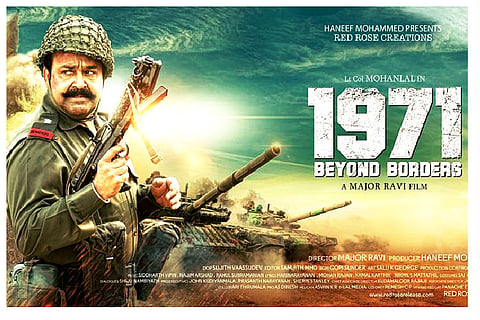

1971: Beyond Borders, the fourth installment in the Major Mahadevan series directed by Major Ravi, comes at a time when 'Think about the jawan at the border' has become the universal line to quell any kind of dissent, and it has become compulsory to stand up for the national anthem before you watch a film at the theatre.